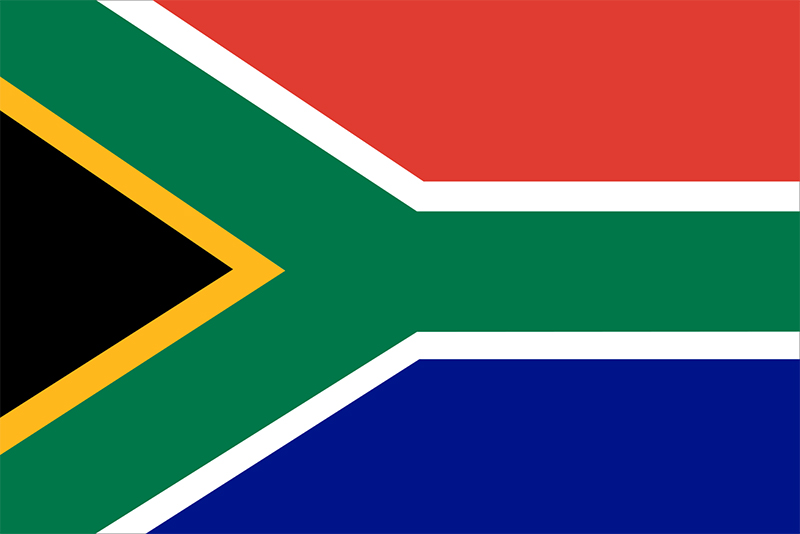The African immigrant’s blues in South Africa
In 1911, a paper titled “The Causes of Earlier European Immigration to the United States”, written by Thomas Walker Page, appeared in The University of Chicago Press’s Journal of Political Economy. “It would be impossible,” states Page, “to enumerate all the causes that induce men to leave old homes for new.” Page continues further to […]

In 1911, a paper titled “The Causes of Earlier European Immigration to the United States”, written by Thomas Walker Page, appeared in The University of Chicago Press’s Journal of Political Economy. “It would be impossible,” states Page, “to enumerate all the causes that induce men to leave old homes for new.”
Page continues further to state: “Sometimes it is a mere spirit of adventure, a love of change. Very often the reasons are personal; sometimes they are involved and complicated, and however strongly felt, are but vaguely understood even by those that move under their influence.”
Indeed the particularities enjoining (in) voluntary cross-border displacement of populations are many and varied. Zimbabweans will tell you they are exiled because political tyranny and economic gloom at home are simply of burning intensity. A scientist from Gaborone will speak about how in demand his skills are in South Africa. A Mosotho from the mountainous, landlocked nation of the mighty King Moshoeshoe will tell you that it is better to be a maid dependent on her South African employers’ leftovers than to be without food at home. A Mozambican will tell you that you don’t hear of armed insurgency in South Africa, which you so readily hear of in Cabo Delgado.
Of course it should concern us that there are people who walk through our borders specifically to engage in crime. This is a group that must be hunted down like any other criminal in the republic and be arrested, prosecuted and deported/imprisoned if they are found guilty.
Recently, after Russia invaded Ukraine, the usual devastating consequences of war began to show. Soon after Russian troops entered Ukraine, the falling of misslies and bombs brought fear, agony and death as all normality morphed into smoke and debris. Then came the lack of basic amenities like fuel and medicine and food. Suddenly, thousands of people, old and young, made their way to cross the borders of neighbouring countries such as Hungary and Poland, instantaneously becoming refugees.
Perhaps underpinned by different particularities, it can be argued that the many African immigrants, legal and illegal, who find themselves within the borders of South Africa, were pushed, just like Ukrainians.
Discussing the Russia/Ukraine situation, Alexis Okeowo points out that “unlike many others who, over the past decade, have sought to escape conflict and oppression by fleeing to European countries, (Ukrainians) were welcomed inside. On television, some reporters covering the war tried to explain why. An NBC News correspondent said: ‘These are not refugees from Syria … These are Christians, they are white, they’re very similar to the people that live in Poland.’ On CBS News, a correspondent said, referring to Kyiv: ‘This is a relatively civilised, relatively European … city.’”
Okeowo’s piece discloses the nudity of racism and white supremacy that is both banal and without blemish.
Here in South Africa, the leaders of Operation Dudula and the #PutSouthAfricansFirst campaign must wonder why fellow Africans who need to leave their countries are not “welcomed” in South Africa when people of European origin are leading a peaceful, generally prosperous life here (when Europe has not rejected them).
Why are Africans, who are the same as Africans in South Africa, unwelcome aliens deserving of terror and abuse, when Ukrainians are defended and welcomed by other Europeans because they are European?
Measured answers to these questions will help develop a better, clearer perspective. Otherwise it is not unlikely that Operation Dudula and the #PutSouthAfricansFirst campaign will, barring a successful outcome here and there, in the long run be seen as campaigns that foster black-on-black violence, ultimately dividing black people. This outcome must be resisted.
The other day on SAfm, advocate Dali Mpofu interviewed Nelvis Qekema, the president of the Azanian People’s Organisation (Azapo). The discussion was wide-ranging in its coverage of topics that have to do with blackness and solidarity among blacks.
Qekema, among other things, said something fundamental. He said when a black man is attacked, Azapo is attacked. When a black man is undermined, Azapo is undermined. And so when that happens, Azapo will stand up in solidarity with the black man, whether that black man appreciates it or not. It would be helpful if those managing African immigration contemplated Qekema’s appreciation of the black cause. The plight of the African immigrant is an intricate and multifaceted reality that calls for calm and reason.
Also, in the subsequent revisioning and contestation of what it is to be African across all of Africa, given a history and a contemporary milieu that is laced with manifestation of the colonial and the postcolonial, it becomes unavoidable that Steve Biko’s Black Consciousness and Robert Sobukwe’s Pan Africanism should necessarily be the organising tools upon which examination and the way forward regarding the plight of the African immigrant in Africa should serve as references.
The urgent question, therefore, is whether we have in Nhlanhla Lux’s Operation Dudula and #PutSouthAfricansFirst a legion of leaders who are equipped with these tools. Will these leaders make their followers appreciate, as Warsan Shire puts it, that “No one puts their children in a boat unless the water is safer than the land”?
Source: The Mail&Guardian
